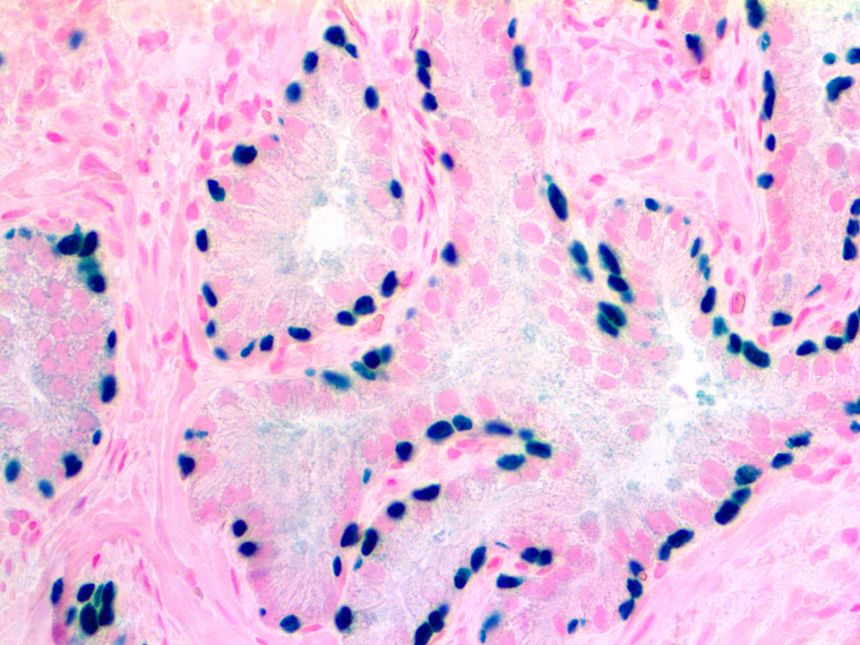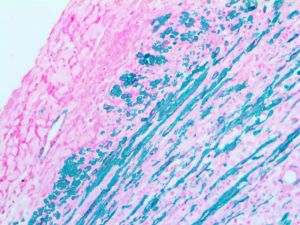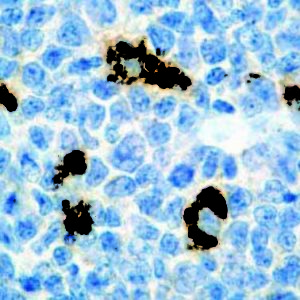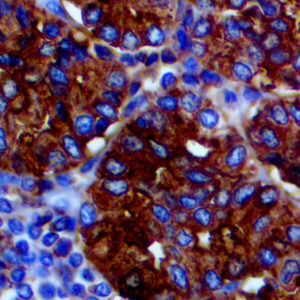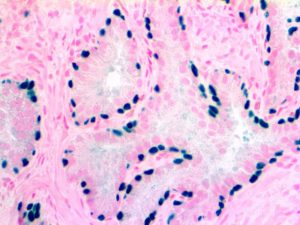
IHC of p63 on an FFPE Prostate Tissue
| Intended Use | For In Vitro Diagnostic Use | |||||||||||||||||||||||
| Summary and Explanation | In addition to p53, mammalian cells contain two homologous genes, p63 and p73. These genes give rise to the expression of proteins that are highly similar to p53 in structure and function. In particular, p63 and p73 proteins can induce p53-responsive genes and elicit programmed cell death. p73 and p63 are more important during deve opment and diff erentiation. In particular, p63 appears to be primarily implicated in epithelial development. Anti-p63 to human p63 protein labels an epitope common to all six p63 isotypes (TAp63α, TAp63β, TAp63γ, ΔNp63α, ΔNp63β, ΔNp63γ). p63 labels the nuclei of myoepithelial cells in the prostate gland as well as breast tissue, making it useful in diff erentiating benign vs. malignant prostate lesions and breast lesions. | |||||||||||||||||||||||
| Antibody Type | Rabbit Monoclonal | Clone | EP174 | |||||||||||||||||||||
| Isotype | IgG | Reactivity | Paraffin, Frozen | |||||||||||||||||||||
| Localization | Nuclear | Control | Prostate, Breast, Skin, Salivary Gland | |||||||||||||||||||||
| Presentation | p63 is a rabbit monoclonal antibody derived from cell culture supernatant that is concentrated, dialyzed, filter sterilized and diluted in buff er pH 7.5, containing BSA and sodium azide as a preservative. | |||||||||||||||||||||||
| Availability |
| |||||||||||||||||||||||
| Note: For concentrated antibodies, please centrifuge prior to use to ensure recovery of all product. | ||||||||||||||||||||||||
